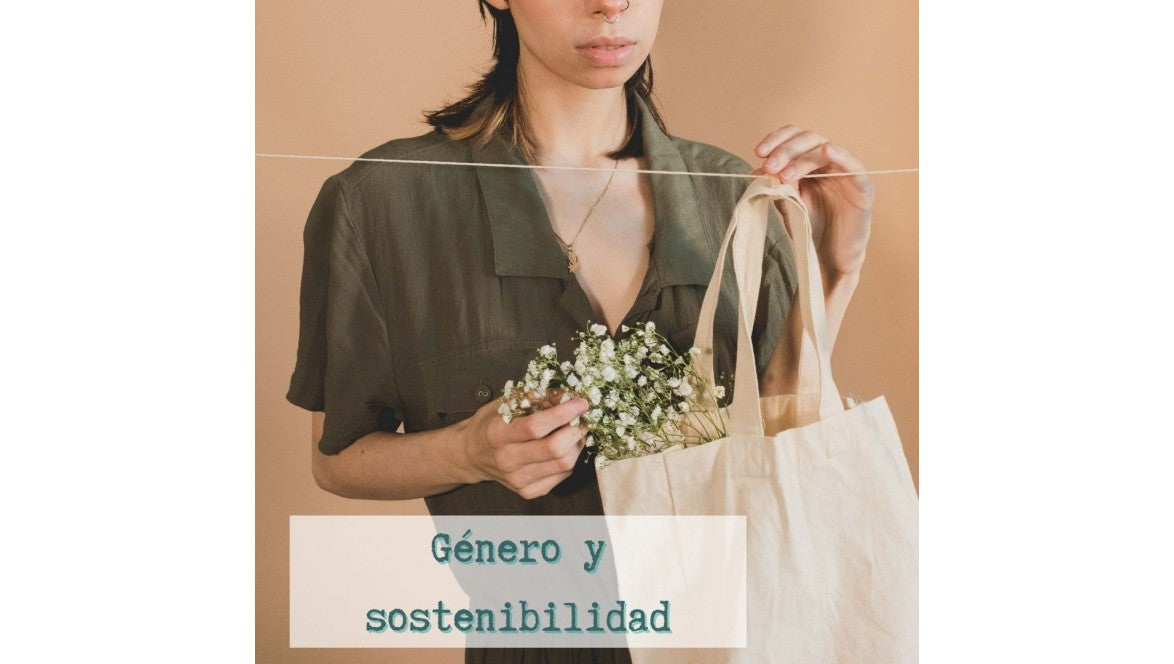What a mess we're going to open today... The title of this post alone has me thinking for a while about which words to choose. I'd be the first to change it, but it's just a question. Maybe even a rhetorical one. This question and the post as a whole are meant to invite reflection , not so much to reach any concrete conclusions.
We don't have definitive answers when it comes to gender and sustainability . Simply talking about gender can raise suspicions. We're not going to enter into debates related to the abolition of gender or identity issues, but we understand that addressing an issue like this is already skewed by that prism. We recognize the complexity of these issues, show our utmost respect for dissident identities, and apologize if our language or way of presenting the topic isn't the most inclusive you'll find online. We also ask for your understanding that this is a blog post, not a treatise or a thorough study. We don't pretend to be a reference for anything. We simply want to reflect out loud and invite you to do so with us.
WHY WE ASK OURSELVES THIS QUESTION
We often wonder if sustainability is a women's issue because we work in a sector where women are overwhelmingly the priority . Almost all the businesses we know in the sector are run by women, including among the supplier companies. Of course, there are men, but they represent a much smaller percentage. This means that the people with whom we've collaborated or done direct work are, if memory serves, women in every case. Something to reflect on... On the one hand, it's absolutely logical that we collaborate with women since they are the majority in the sector . On the other hand, it's also worth considering whether we need to make a greater effort to ensure that men have more space in our community and thus "set an example."
Oh! Rummaging through my memory a little more, I remember two collaboration proposals with men that didn't quite pan out. I don't mean to say that we haven't ended up working with them alone. But I do want to emphasize that we're not closed off from doing things with them . That we do take them into account, and not just because they're male, but simply as professionals.

And we realize something else. Looking back at the men we've chosen to collaborate with, those who work in the sector, and our suppliers, we find another pattern... Most of them don't exhibit what we might call "traits of hegemonic masculinity." What a sight! It makes us think...
We show you the gender distribution of the people who follow us:

Are you surprised? We are. I looked up the global gender distribution data on Instagram, and the most recent reference shows that it's 51% women and 49% men. A few years ago, the difference was much greater; many more women used this social network. The gender distribution of our followers isn't justified just because women are the ones who use the app the most.
We add that almost all the people who register in our store have a female name.
And then the question arises: Is sustainability a woman's thing? And so the following reflection arises: sustainability is closely related to caring for the planet. There it is! The word CARE . Another question arises: Is caregiving a woman's thing? Oh! The question is beginning to become clearer to me, but I'd rather not dwell on it further so that everyone can reflect from their own perspective.
ARE WE ADDRESSING MEN?
I'm going to keep mulling this over. Are we targeting women exclusively? Are our products geared toward them? Could there be a perceived bias in our discourse? We'll be vigilant, but, a priori, it doesn't seem so.
We try to use inclusive language , although the truth is that it's often overlooked. Other times, we consciously decide to let it slide, either to save language or even to avoid potential controversy. You'd be surprised how social media is doing...
When we talk about sustainable menstruation , for example, we do use the feminine gender, yes. I can only think of this one example where our message is intentionally directed at them. Although, on occasion, we've also used the term "people who menstruate " to include other realities.
As far as I can remember, whenever we've talked about cosmetics or makeup , for example, we haven't been addressing any gender.
In fact, it's the other way around. Sometimes we direct our message or products exclusively to them . For example, now that Father's Day is approaching, you can see that we have special gifts for them . As well as some products specially formulated for them, like this cream or this shampoo . And it wasn't easy deciding whether to include them or not, much less calling them "for men."

Do we have products for men or women? No. We've said it enough on our social media. In the case of these products, in addition to the formulation for the most common skin type in men (if that can be completely clear), there's also a question of the product's scent. They have scents that we generally associate with masculinity. We maintain them and use the names given to them by their manufacturers because we know there are people who seek them out. And yet, we reflect on all of this and constantly question whether changes need to be made.
And going further into this... What if we have to stop trying to include them? What if it's their responsibility to take further steps? We definitely don't have the answers to this.




